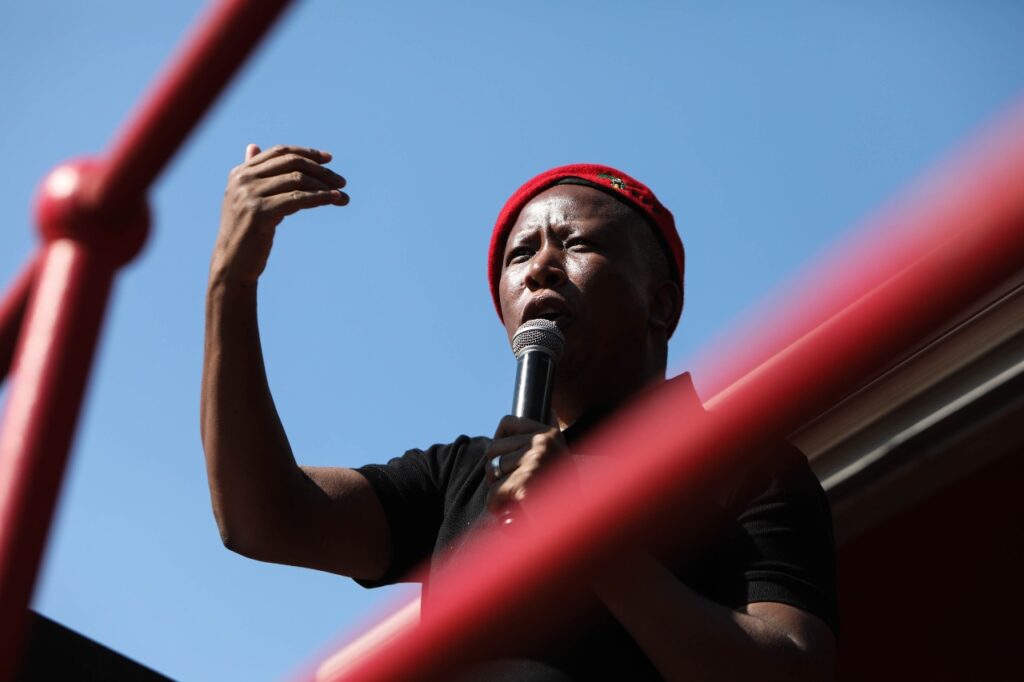Johannesburg, August 28, 2023 – The South African Reserve Bank (SARB) has released a report clearing President Cyril Ramaphosa of any wrongdoing in the Phala Phala matter, a development that has immediate political and legal ramifications. In response to the report’s release, on Sunday Julius Malema announced while addressing the media on the outcomes of its central command team’s (CCT) meeting on Friday and Saturday that Economic Freedom Fighters (EFF) party would challenge the SARB report through a judicial review.
The SARB’s thorough investigation into the Phala Phala matter has resulted in a report that exonerates President Ramaphosa from any direct involvement in the alleged financial impropriety surrounding the wildlife conservancy. The findings align with Ramaphosa’s insistence that he had no personal stake or influence in the conservancy’s financial affairs.
The SARB’s report is expected to influence public perception and political dynamics in the lead-up to the forthcoming elections. Allegations of financial misconduct can significantly impact a leader’s credibility and reputation, and the report’s exoneration of Ramaphosa may serve to restore some of the confidence that had been eroded by the allegations.
Malema emphasised that during the meeting “the CCT engaged in these critical matters taking into cognisance the fact that in South Africa, state institutions are being abused in protection of one individual, a compromised head of state who is also a money launderer.
“We reject with contempt, the South African Reserve Bank’s cover-up of the Phala Phala crimes and unlawful smuggling and usage of foreign currencies.
“We will take the South African Reserve Bank report on Phala Phala dollars to court for a judicial review because there is evidently an attempt to cover up the crimes committed in Phala Phala and state institutions are being abused in protection of the outgoing president of South Africa.”
The EFF’s announcement that it will pursue a judicial review of the SARB report adds a layer of complexity to the matter. The party has expressed reservations about the thoroughness of the investigation and the validity of the conclusions drawn. The judicial review indicates the EFF’s intent to scrutinise the report’s findings in a legal context.
The EFF’s decision to challenge the report is likely driven by its own political motivations and concerns about the independence and efficacy of the investigation. The judicial review process will allow the party to present legal arguments and evidence to counter the SARB’s findings, setting the stage for a potential legal battle over the matter.
Broader Implications
The SARB report and the subsequent judicial review highlight broader themes of accountability, transparency, and the role of institutions in South Africa’s political landscape. The controversy surrounding the Phala Phala matter extends beyond the individuals involved and speaks to the need for a robust and credible system of checks and balances.
Elections and Beyond
The exoneration of President Ramaphosa and the EFF’s pursuit of a judicial review are likely to feature prominently in political campaigns and debates, underscoring the intertwined nature of governance, law, and public perception.
Balancing Act
The convergence of the SARB report’s exoneration of President Ramaphosa and the EFF’s decision to challenge it through a judicial review presents a delicate balance between legal processes, political considerations, and public accountability. The outcome of this dual trajectory could significantly shape the political landscape and discourse in South Africa in the months ahead.
